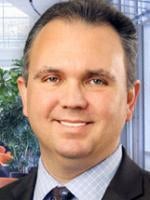Behavioral health had its most active year in 2021, which came on the heels of very active years that preceded it. There are many factors that contributed to this and that indicate that 2022 is likely to involve substantial M&A activity once again. A brief summary of those factors follows below.
Growing Demand. Unfortunately, the U.S. had been experiencing significant levels of substance use disorder and mental health conditions for years before the pandemic, although there did seem to be some leveling off and greater progress made in some areas in the years immediately leading up to 2020. COVID-19 and responses to same, while aiming to help contain and limit the terrible effects of that virus, have undoubtedly resulted in other health and mental health related damage on many levels. Substance use disorder, suicides and mental health conditions have grown substantially from already serious pre-pandemic levels.
For example, over 20% of school-aged children have experienced worsened mental or emotional health since the pandemic began.1 Recently, the U.S. Surgeon General issued a Surgeon General’s Advisory to underscore the immediate need to address the mental health crisis that our youth are facing.2 The Advisory summarizes the severe effects that the pandemic and pandemic related measures have had on children and families, as well as similar (but somewhat less severe) mental health challenges that already existed prior to the pandemic. Moreover, late last year, a coalition of the nation’s leading experts in pediatric health declared a national emergency in child and adolescent mental health.3
Adults are suffering increased rates of mental health and substance use disorder-related conditions as well. For example, among adults with symptoms of anxiety and/or depressive disorder during the pandemic, over 20% report needing, but not receiving, mental health counseling or therapy.4
Decrease in Stigma. A noticeable decrease in stigma about having behavioral health conditions and receiving treatment for same is resulting in more pursuit of such treatment, driving demand as well. For example, HealthPartners surveyed adults in 2017 and in 2019 in communities that have launched Make It OK campaigns5 . Results show that there has been a statistically significant decrease in stigma among survey respondents. The surveys show that from 2017 to 20196 :
-
More people feel comfortable talking with someone about their mental illness (66% to 71%)
-
More people say they would tell friends if they had a mental illness (34% to 41%)
-
Fewer people say they would be reluctant to seek help (50% to 46%)
However, stigma is still prevalent and the need to reduce it further remains:
-
Only about one in four think that people are generally caring and sympathetic to individuals who live with a mental illness (24% to 26%)
-
More than nine out of ten said that the Make It OK goal to reduce stigma is important (93% to 95%)
Although there is anecdotal evidence of a reduction with respect to substance use disorder-related stigma, it was more difficult to locate substantial levels of researchbased evidence to support that. Clearly more work remains to be done with respect to reduction of stigma around all levels and types of behavioral health conditions. Notwithstanding, any reduction is welcome and drives greater demand, as well as greater resources to meet that growing demand.
Access Through Telebehavioral Health
As discussed in more detail within this Newsletter (below), the convergence of technology, growing patient demand, greater regulatory flexibility and greater availability of payment for behavioral health care have all converged to cause telehealth in the behavioral health sector to explode. With this development came greater access at a critical time of need, and, to a degree, contributes to both additional available supply of and demand for quality, convenient behavioral health resources. Nevertheless, demand continues to outstrip the supply that is currently available. The drive to meet that need will also continue to drive behavioral health M&A.
Greater Recognition of Importance of Integrating Behavioral Health and Physical Health
Policy makers, payors, providers and other stakeholders are talking in more detail and with greater frequency about the need to integrate behavioral health into the larger health care spectrum and in order to better pursue whole person care. As discussed in more detail within this Newsletter (below), leveraging partnerships to integrate behavioral health services and offer services via telehealth, while also collecting and analyzing data regarding SDOH (as defined below), may better enable providers to improve health care outcomes, increase patient satisfaction and quality, and control costs. All of this requires resources and disciplined organization. That need may also help drive further investment by private equity, strategic buyers and health system partners (among others) who can bring those attributes to bear into the behavioral health care sector.
Fragmented Market and Insufficient Resources. The behavioral health market continues to be ripe for growth. Like many other health care sectors, the behavioral health market is still relatively fragmented and often rendered by small providers that have no national presence and are not part of a larger continuum of care. And there is often an insufficient number of treatment providers to meet growing demand (as discussed further below in this Newsletter), which itself also serves as a driver of increased behavioral health care M&A and investment. In some health care sectors greater consolidation and standardization has resulted in improved care, improved access to care, streamlined costs of operation, better recruitment of health care professionals and greater efficiencies. There is potential for private equity-backed and other investors and health care stakeholders to engage in further acquisitions to drive significant economies of scale, resulting in both clinical and administrative standardization and better, more accessible and more efficient care.7
FOOTNOTES
1 Nirmita Panchal, Rabah Kamal, Cynthia Cox, Rachel Garfield and Priya Chidabaram, Mental Health and Substance Use Considerations Among Children During the COVID-19 Pandemic, Kaiser Family Foundation https://www.kff.org/coronavirus-covid-19/issue-brief/mental-health-and-substance-use-considerationsamong-children-during-the-covid-19-pandemic/ (last visited February 1, 2022).
2 U.S. Surgeon General Issues Advisory on Youth Mental Health Crisis Further Exposed by COVID-19 Pandemic https://www.hhs.gov/about/news/2021/12/07/ussurgeon-general-issues-advisory-on-youth-mental-health-crisis-further-exposed-by-covid-19-pandemic.html (last visited February 8, 2022).
3 AAP-AACAP-CHA Declaration of National Emergency in Child and Adolescent Mental Health, American Academy Of Pediatrics https://www.aap.org/en/ advocacy/child-and-adolescent-healthy-mental-development/aap-aacap-cha-declaration-of-a-national-emergency-in-child-and-adolescent-mental-health/ (last visited February 8, 2022).
4 Id. See also, supra, FN 9 in the “Staffing Shortages Will Continue To Reduce Access to Behavioral Health” article, below (suggesting that the actual number of adults in need of mental health care but not receiving it may be significantly higher).
5 Make It Ok campaigns are designed to reduce the stigma of mental illness. See https://makeitok.org/ (last visited February 15, 2022).
6 Stigma of Mental Illnesses Decreasing, Survey Shows, HealthPartners https://www.healthpartners.com/hp/about/press-releases/stigma-of-mental-illnessesdecreasing.html#:~:text=Results%20show%20that%20there%20has,illness%20(66%25%20to%2071%25) (last visited February 8, 2022).
7 Dr. Bill Bithoney, Behavioral Health: A Market Ripe for Growth and Consolidation, BDO https://www.bdo.com/insights/industries/healthcare/behavioral-health-a-market-ripe-for-growth (last visited February 8, 2022).




 />i
/>i

